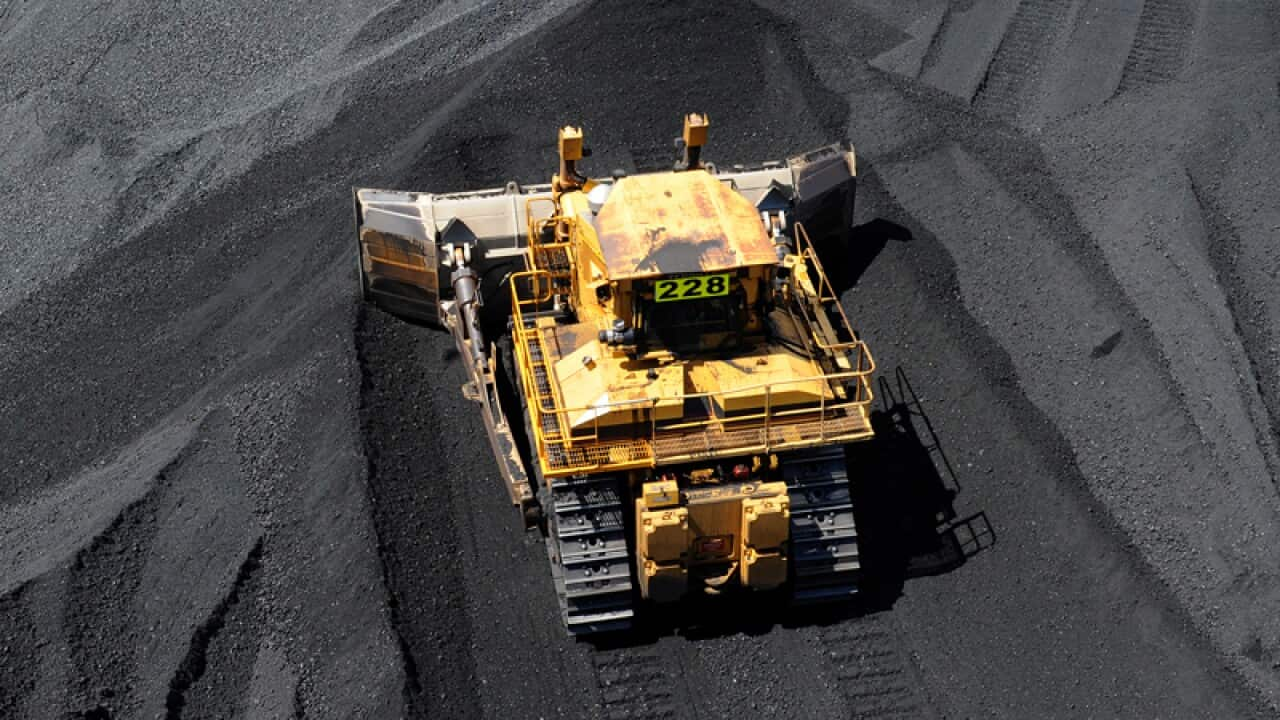A new report has put the value of the Great Barrier Reef at more than twice that of Adani's new mega coal mine in Queensland - a project opponents say will help sign the reef's death warrant.
But Federal Environment Minister Josh Frydenberg says Adani's planned mine is "300km inland ... in a dry, dusty part of Queensland" and if Australia doesn't help meet India's energy needs, another country will do it with dirtier coal and reap all the economic benefits.
Mr Frydenberg was responding to a new Deloitte Access Economics report that valued the Great Barrier Reef at $56 billion and warned of serious economic consequences for Australia unless more is done to protect it.
Related reading

Great Barrier Reef plan must move faster: UNESCO
The report, produced for the Great Barrier Reef Foundation, says the World Heritage-listed asset underpins 64,000 direct and indirect jobs, and contributes $6.4 billion to the nation's economy each year.
By comparison, Adani's planned Carmichael coal mine project and its associated infrastructure has been valued at $21.7 billion, with the Indian miner forecasting 10,000 direct and indirect jobs.
The mine is also expected to generate $203 million in direct and indirect contributions during construction and $274 million in production.
Asked on Monday how the federal government could support the mine, when the value of the reef dwarfed it, Mr Frydenberg said Australia's coal was cleaner than other sources.
"If Australia vacates this field, not only will we be forgoing billions of dollars' worth of export income and thousands of jobs domestically, but somebody else will sell that coal into India and the impact on the environment could be worse in terms of emissions," he said in a statement.
Related reading

Adani's $16 billion Queensland mega mine gets the go-ahead
The Australian Conservation Foundation says emissions from the coal Adani will mine will fuel the primary threat to the reef's survival: climate change.
"It's just a disturbing statement to hear from our federal environment minister," ACF campaigner Basha Stasak told AAP.
"Our governments seem to refuse to acknowledge the reality of the situation. It's a choice - it's coal or it's coral and we are going to have to pick."
A former chief scientist of the Australian Institute of Marine Science, Charlie Veron, last week urged the Turnbull government to revoke Adani's environmental approval, saying coal mining was the primary threat to coral reefs worldwide.
"If we wipe out coral reefs, we are going to crash the ecologies of the oceans," he told the ABC.
On Monday, climate scientist Professor Will Steffen, from the Climate Council, echoed that call.
"We're gambling with this priceless global asset if we persevere with any new fossil fuel developments - and there's no room for exceptions here," he said.
Greenpeace said it was impossible to put a dollar value on a global wonder, and the Deloitte report missed the point.
"We have an inescapable moral responsibility to save it for us, and for future generations - regardless of its economic value," climate and energy campaign director Nikola Casule said.
The reef has suffered back-to-back mass coral bleaching events due to warming ocean temperatures.
Earlier this month UNESCO expressed serious concern about the bleaching, saying climate change remained the most significant threat, and urged Australia to work faster to improve water quality.
The Deloitte report said that of the 64,000 jobs linked to the reef, 39,000 were direct jobs - making the reef a bigger "employer" than the likes of Telstra, the Qantas Group, National Australia Bank, and the oil and gas extraction industry.
Related reading

Group loses bid to stop Adani expansion









